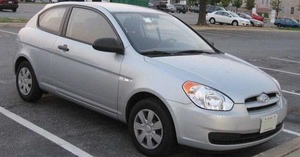Hyundai Accent Years To Avoid
Body
When considering a used Hyundai Accent, there are certain model years that potential buyers may want to approach with caution. It's important to note that individual experiences may vary, but some Hyundai Accent model years have been associated with certain issues. For example, the 2011 and 2012 model years have been reported to have problems with the transmission, including issues with shifting and overall performance. Additionally, the 2013 model year has been mentioned in relation to engine problems.
However, it's crucial to conduct thorough research and consider factors such as maintenance history and overall vehicle condition when making a purchasing decision. Consulting with automotive experts and checking for recalls or common problems associated with specific model years can also provide valuable insights to ensure a more informed decision. To learn more interesting facts about the Hyundai Accent visit autonationx.com.
That being said, here are some general tips for used car buyers:
First Generation (1994–1999): These early models may have more wear and tear due to their age. Look out for signs of rust and make sure that proper maintenance has been carried out.
Second Generation (2000–2005): While this generation generally had positive reviews, individual cars may vary in condition. Pay attention to factors such as rust, transmission issues, and overall maintenance.
Third Generation (2006–2011): Some users reported issues with the automatic transmission in certain models. Checking the maintenance history, especially regarding the transmission, is crucial for cars from this period.
Fourth Generation (2012–2017): This generation had improvements in design and features. However, some users reported issues with the transmission, so it's important to check for proper maintenance and potential transmission problems.
Fifth Generation (2018–present, as of my last knowledge update in January 2022): Given the relatively recent release of these models, it's challenging to provide comprehensive information about long-term reliability. As time goes on, more data will become available on these models.
It's crucial to conduct thorough research and consider individual vehicle histories when purchasing a used car. Additionally, staying informed about recalls and technical service bulletins (TSBs) related to the specific model year you're interested in can provide valuable insights.
The third generation (2006–2011) Hyundai Accent had some reported issues, including:
Transmission Problems (2006-2011): Some owners have reported issues with the automatic transmission, including slipping and rough shifting.
Suspension Concerns (2006-2011): There have been complaints about the suspension system, with some owners experiencing problems with struts and other components.
Rust Issues (especially in older models): Some older Hyundai Accents, especially those in regions with harsh climates, may be prone to rust, particularly around the wheel wells and undercarriage.
It's essential to note that Hyundai, like other manufacturers, may address issues through recalls or updates, so checking for recalls and ensuring that the vehicle has been properly maintained can mitigate some of these concerns.
Before purchasing any used car, it's advisable to have a trusted mechanic inspect the vehicle thoroughly. Additionally, researching specific model years and checking owner reviews can provide valuable insights into common problems and overall satisfaction.
Always consider the mileage, maintenance history, and overall condition of the specific vehicle you're interested in, rather than solely relying on general information about a particular model year.














Comments